ON INTERNATIONAL ANTI-CORRUPTION DAY, FIGHTING ECONOMIC EVIL
With new standards in the works, ISO joins the fight. [CONSUMERS, MANAGEMENT SYSTEMS, BUSINESS & ANTI-BRIBERY] Corruption threatens national security, economic growth, human rights, jobs,
ISO 27001:2013 is an international standard for INFORMATION SECURITY MANAGEMENT
An information security management system (ISMS) is a comprehensive strategy to ensuring the confidentiality, integrity, and availability (CIA) of business information assets. People, processes, and technology are all part of it, as are policies, procedures, and other controls. An ISMS is an efficient, risk-based, and technology-neutral way to keeping your information assets secure, informed by regular information security risk assessments. To begin, keep in mind that ISO 27001:2013’s entire name is “ISO/IEC 27001:2013 – Information technology — Security approaches — Information security management systems — Requirements.”
It is the premier worldwide information security standard, produced jointly by the International Organization for Standardization (ISO) and the International Electro technical Commission (IEC) (IEC). Both are worldwide standards-setting bodies with a strong track record. ISO 27001:2013 was created to assist enterprises of any size or industry in adopting an Information Security Management System to protect their information in a methodical and cost-effective manner (ISMS).
ISO 27001:2013’s primary purpose is to safeguard three aspects of data:
The goal of ISO/IEC 27001:2013-compliant information security management is to provide effective protection for information and IT systems in terms of security, authenticity, and accessibility. This security is not a goal in and of itself; rather, it aims to support business operations, the attainment of corporate objectives, and the preservation of company assets by reliably providing and processing data. The following three views are commonly used in an ISMS:
1) G – Governance perspective – IT and information security goals drawn from the company’s broader goals.
2) R – Risk viewpoint – Asset and IT system protection requirements and risk exposure.
3) C – Point of view on compliance
One of the most widely used information security standards is ISO 27001:2013. Certification to the Standard by an independent accrediting body is recognised all across the world. In the last ten years, the number of certifications has increased by more than 450 percent.
Implementing the Standard will assist you in meeting the legal obligations for information security. This helps to cut down on the expenses of data breaches.
With the implementation of this information security standard, a corporation can realise four important commercial benefits:
There are an increasing number of laws, regulations, and contractual requirements relating to information security, and the good news is that the majority of them can be resolved by implementing ISO 27001:2013 – this standard provides you with the perfect methodology to comply with them all.
If your firm becomes certified while your opponents will not, you may gain a competitive advantage over them in the eyes of clients who are concerned about the security of their personal information.
Fast-growing organisations generally do not have the time to stop and define their processes and procedures; as a result, employees frequently are unaware of what needs to be done, when, and by whom. ISO 27001:2013 implementation aids in the resolution of such problems since it encourages businesses to document their core operations, allowing them to reduce lost time by their employees.
ISO 27001:2013’s fundamental idea is to prevent security incidents, and every occurrence, large or small, costs money. As a result, preventing them will save your firm a significant amount of money. The best part is that the cost of implementing ISO 27001:2013 is significantly less than the cost savings you would realise.
From that perspective, ISO 27001 implementation can benefit any organisation that handles sensitive data, whether for profit or not, small or large, public or private.
Software development firms, cloud firms, and IT support organisations are just a few of the industries that implement ISO 27001 – most usually, they do so to get new clients by proving to them with a certificate that they are capable of safeguarding their information in the best possible way.
Government agencies manage extremely sensitive data; part of this data is confidential, but the integrity and availability of this data is critical in all agencies. ISO 27001 was created with those three characteristics in mind, making it an ideal methodology for reducing the number of incidents to a bare minimum.
When banks, insurance firms, brokerage houses, and other financial institutions need to comply with a variety of laws and regulations, they choose ISO 27001. The banking industry’s data protection regulation is the strictest, and fortunately, legislators have mostly based their legislation on ISO 27001:2013. As a result, ISO 27001:2013 is an ideal technique for achieving compliance, making it simple to pitch such a project to executives.
Telecommunications firms, particularly Internet service providers, are focused on safeguarding the massive amounts of data they manage and decreasing disruptions, therefore ISO 27001:2013 is a natural fit.
They want to secure their patients’ data, and pharmaceutical corporations want to keep their development and formula data safe.
Manufacturing companies want to protect their knowledge of how certain parts are made, thus they preserve their particular formulas.
The ISO/IEC 27001:2013 standard, which specifies the standards for an information security management system, is well-known (ISMS). They allow any firm to manage the security of assets such as financial data, intellectual property, employee information, and information provided by third parties.

With new standards in the works, ISO joins the fight. [CONSUMERS, MANAGEMENT SYSTEMS, BUSINESS & ANTI-BRIBERY] Corruption threatens national security, economic growth, human rights, jobs,

ISO standards are offering much-needed solutions as cloud computing revolutionizes the way we socialize and work. [ECONOMY, INNOVATION, COVID-19 & HEALTH] The cloud serves as

New eye-protection guidelines have just been released. [MEDICAL, SAFETY & SPORT] Our eyes are our window to the world and one of our most developed

Organizations must have procedures in place to guarantee they stay up with the regulatory landscape, which is always evolving. Compliance with laws and regulations, on

Regulatory burdens are reduced while product safety and performance are improved. [MEDICAL & BUSINESS] Medical gadgets, ranging from bandages to MRI machines, contribute to save

ISO IS AT THE CENTRE OF A WORLDWIDE EFFORT TO REHABILITATE OUR PLANET. ISO 14000 FAMILY This year’s World Environment Day theme is “Reviving and

ALL INTERNATIONAL STANDARD ACCREDIATION FORUM
